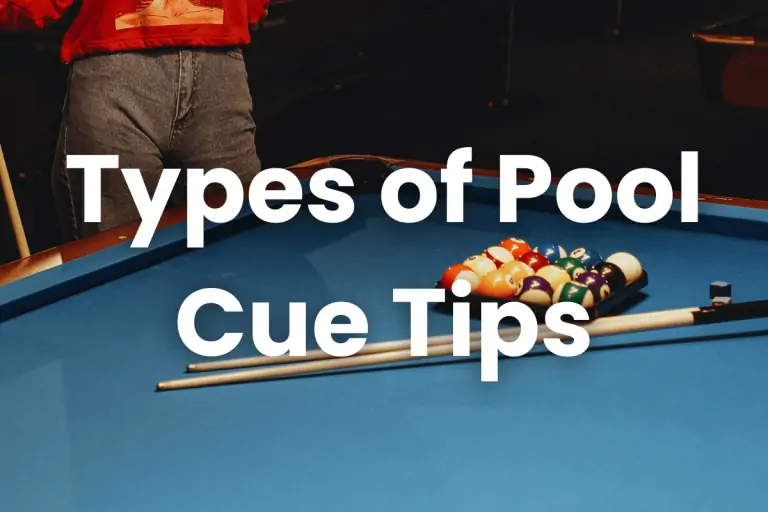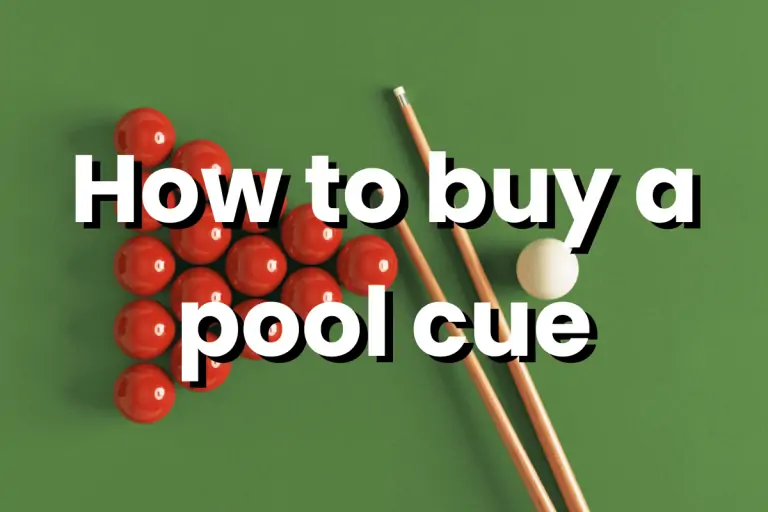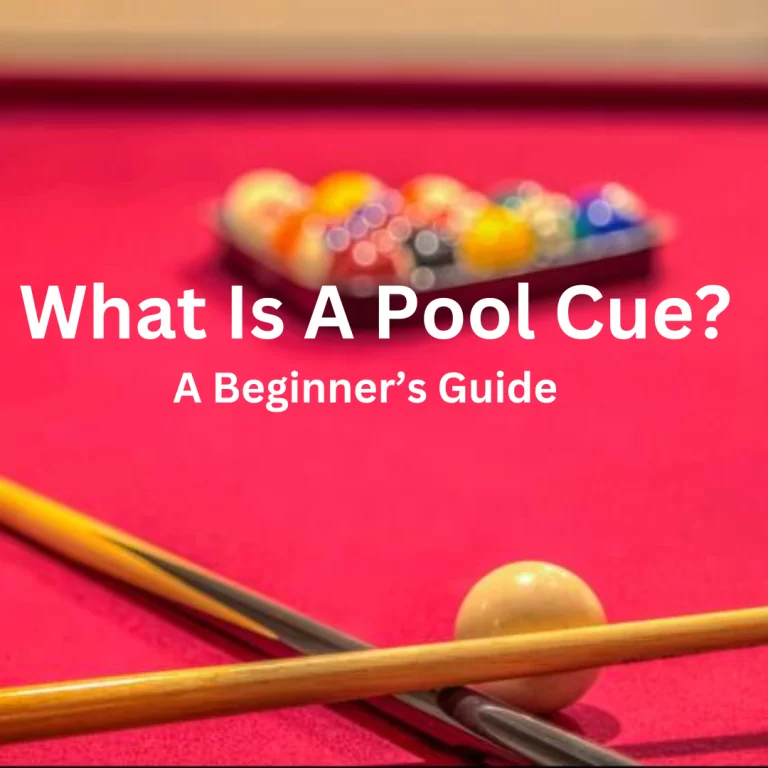How to Clean a Pool Cue: A Step-by-Step Guide (2023)
Cleaning your pool cue isn’t just about looks; it’s about keeping your game strong. We’ve talked about the basics, like what you need and how to clean a Pool Cue step by step. Skipping this can mess up your shots, make your cue feel funny, or even hurt the table. But if you follow our simple guide, you can keep your cue in good shape. Clean it after each game, give it a deep clean now and then, and you’ll get smoother, more accurate shots, making your game more fun. So, don’t forget to take care of your cue; it’ll make you a better player, impress others, and keep you winning!
In the world of snooker, I’ve come to realize that taking care of your equipment is just as essential as mastering the game itself. One of the most overlooked aspects of this maintenance routine is knowing how to clean a pool cue. It might seem like a small detail, but believe me, a clean cue can make all the difference on the green felt.
How to Clean a Pool Cue Like a Pro in 6 Easy Steps
If you’re serious about playing pool, you probably already know the importance of a well-maintained pool cue. A clean cue not only looks great but also performs better. Over time, chalk residue, oils from your hands, and general dirt can build up on your cue, affecting its playability. Don’t worry; cleaning a pool cue is a straightforward process that anyone can do. In this guide, we’ll walk you through the steps to ensure your cue stays in top shape for years to come.
Materials You’ll Need
Before we get started, gather these materials
- Clean, damp cloth: Preferably a microfiber cloth to avoid scratching the cue.
- Rubbing alcohol: To remove chalk and grime.
- Cue wax or cue cleaner: Optional, for a polished finish.
- Q-tip or cotton swab: For detailed cleaning.
- Soft bristle brush: To clean between the cue’s joints.
Step 1: Remove the Cue Tip
Start by removing the cue tip if possible. This step is essential for cleaning the ferrule (the white part of the cue near the tip). Gently twist or unscrew the tip depending on your cue’s design.
Step 2: Wipe Down the Cue
Dampen the clean cloth with rubbing alcohol. Wipe down the cue from the tip to the bumper (the rubber end). Pay extra attention to areas with chalk stains or sticky residues. Use a Q-tip for intricate areas and grooves.
Step 3: Clean the Ferrule
Clean the ferrule thoroughly using a damp cloth and rubbing alcohol. Be gentle to avoid damaging it. A clean ferrule improves your cue’s accuracy.
Step 4: Joint Cleaning
If your cue has joints, use a soft bristle brush to clean between the joints. Dirt often accumulates here and can affect the cue’s alignment.
Step 5: Apply Cue Wax (Optional)
For that extra shine and protection, apply cue wax or cue cleaner following the product’s instructions. It can help preserve the wood and keep it smooth.
Step 6: Reassemble the Cue
Once everything is clean and dry, reassemble the cue. Make sure the tip is securely attached.
Why Cleaning Matters
Before we dive into the specifics of cue cleaning, let’s touch on why it’s crucial. Over time, as you chalk up before each shot and handle your cue, it accumulates residues, oils, and grime. These seemingly insignificant elements can significantly impact your cue’s performance. A dirty cue can result in misfires, inconsistent shots, and a loss of precision.
Here are some additional tips for cleaning your pool cue
- Avoid using harsh chemicals or solvents, as these can damage the cue.
- Be careful not to over-scrub the cue, as this can also damage the finish.
- If your cue has a particularly stubborn stain, you can try using a cue cleaner. However, be sure to follow the instructions on the cleaner carefully.
Conclusion
I love playing pool, but I hate it when my cue gets dirty. It’s not only unsightly, but it can also affect the way the cue plays. That’s why I make sure to clean my cue regularly. It’s a quick and easy process, and it only takes a few minutes.
(To keep your cue in top condition, clean it regularly, especially if you play frequently. Wipe it down with a clean, dry cloth after each game to prevent chalk buildup.)
must be read about How To Clean A Cue Shaft?
FAQs
FAQ 1: What happens if I don’t clean my pool cue regularly?
Neglecting cue cleaning can lead to various issues. Over time, chalk and dirt buildup affect the cue’s smoothness, causing inconsistent shots. You might notice your cue gliding less smoothly through your bridge hand, which can result in off-target shots and lost games. In severe cases, a dirty cue can even damage the felt on the snooker table, affecting everyone’s game.
FAQ 2: Can I use household cleaning products to clean my pool cue?
It’s best to stick to cue-specific cleaners or rubbing alcohol. Household cleaners can contain harsh chemicals that may harm the wood or finishes on your cue. Using the wrong products could leave you with a cue that not only plays poorly but looks worse too.
FAQ 3: How often should I clean my pool cue?
The frequency of cue cleaning depends on how often you play. If you’re a regular player, it’s wise to wipe your cue down with a clean, dry cloth after each game to prevent chalk buildup. A more thorough cleaning, following the step-by-step guide, should be done every few weeks or when you notice performance issues.
FAQ 4: Is it necessary to remove the cue tip for cleaning?
Removing the cue tip is an optional but recommended step for thorough cleaning. It allows you to clean the ferrule (the white part near the tip) more effectively. A clean ferrule ensures a smoother shot, improving accuracy.







